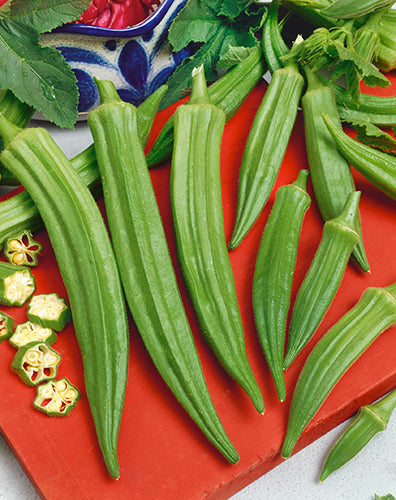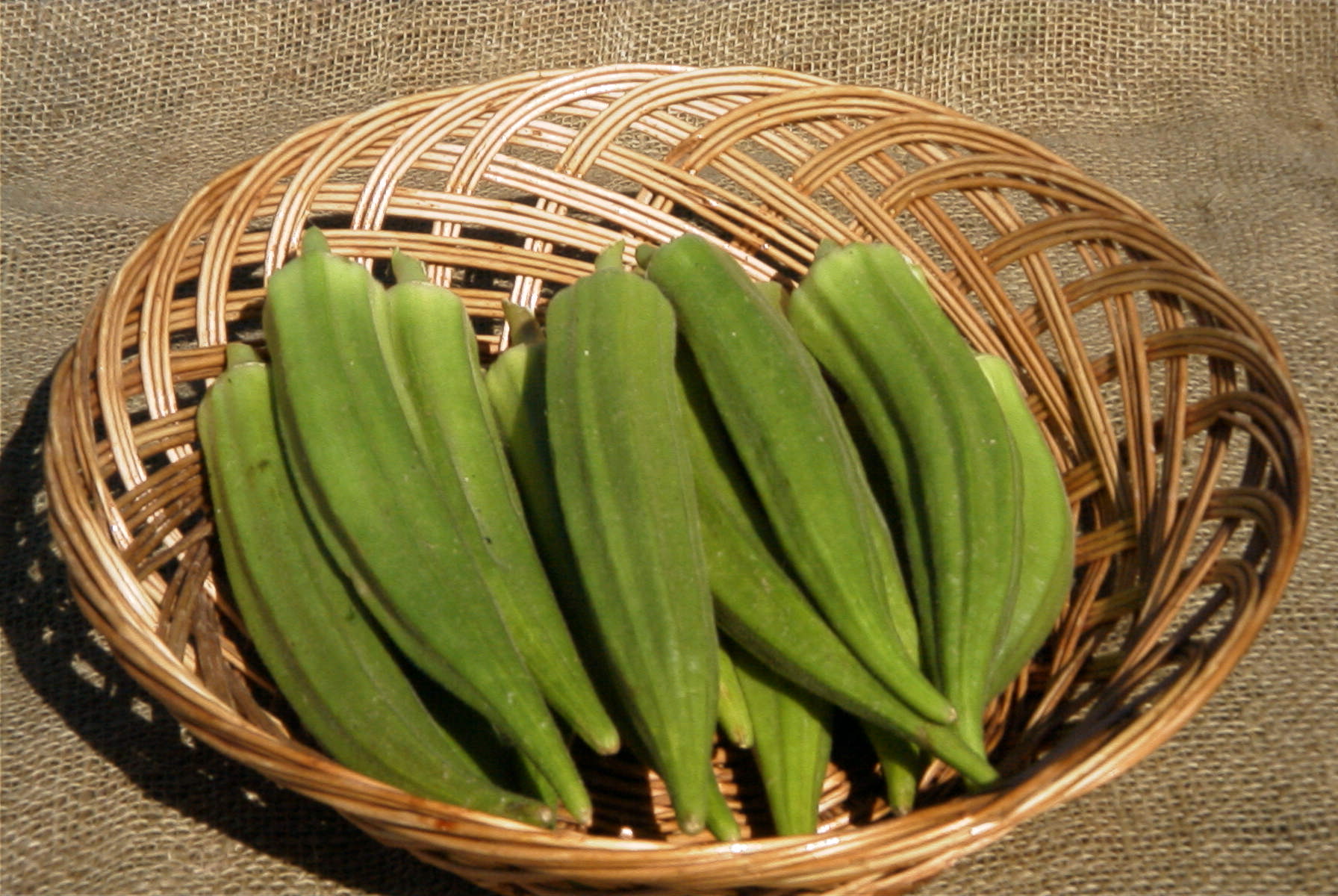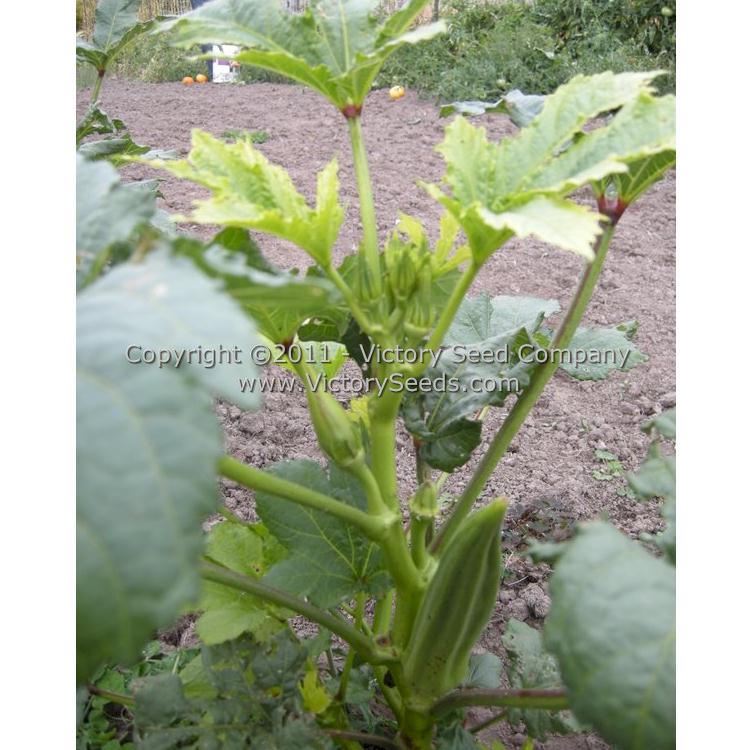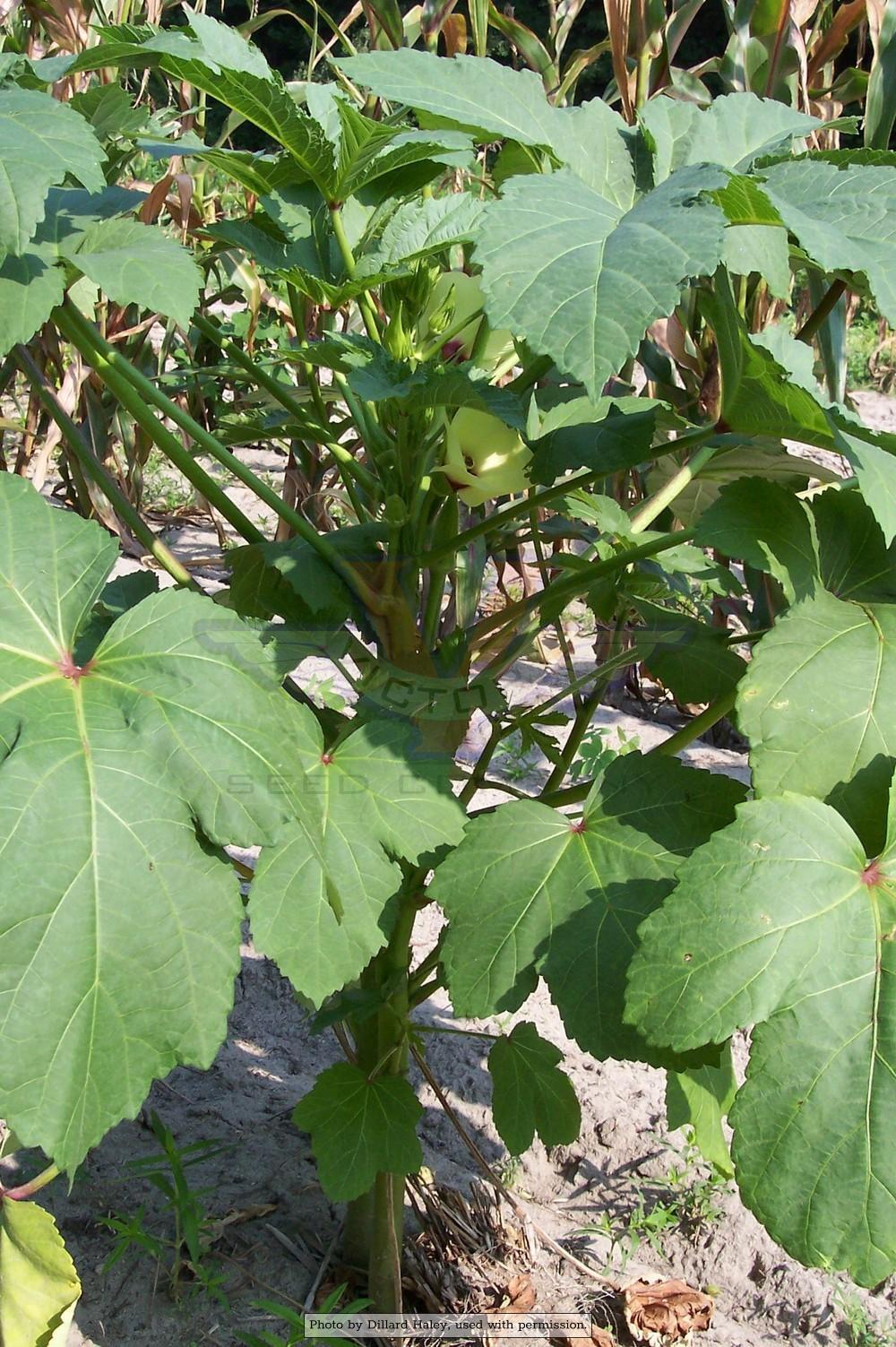Clemson Spineless 80 Okra (Organic)
Clemson Spineless 80 Okra (Organic)
Couldn't load pickup availability

Abelmoschus esculentus
55 days — One of the most popular okra varieties. Similar to the old 1939, "All-America Selection®" winner, 'Clemson Spineless' but slightly taller and more open in its growth habit. The plants are three to five feet developing deep-green, straight and spineless ribbed six to nine inch pods. 'Clemson Spineless 80' okra was bred by Clemson University in South Carolina and introduced in 1980. Each packet contains two grams, which is approximately 30 seeds.

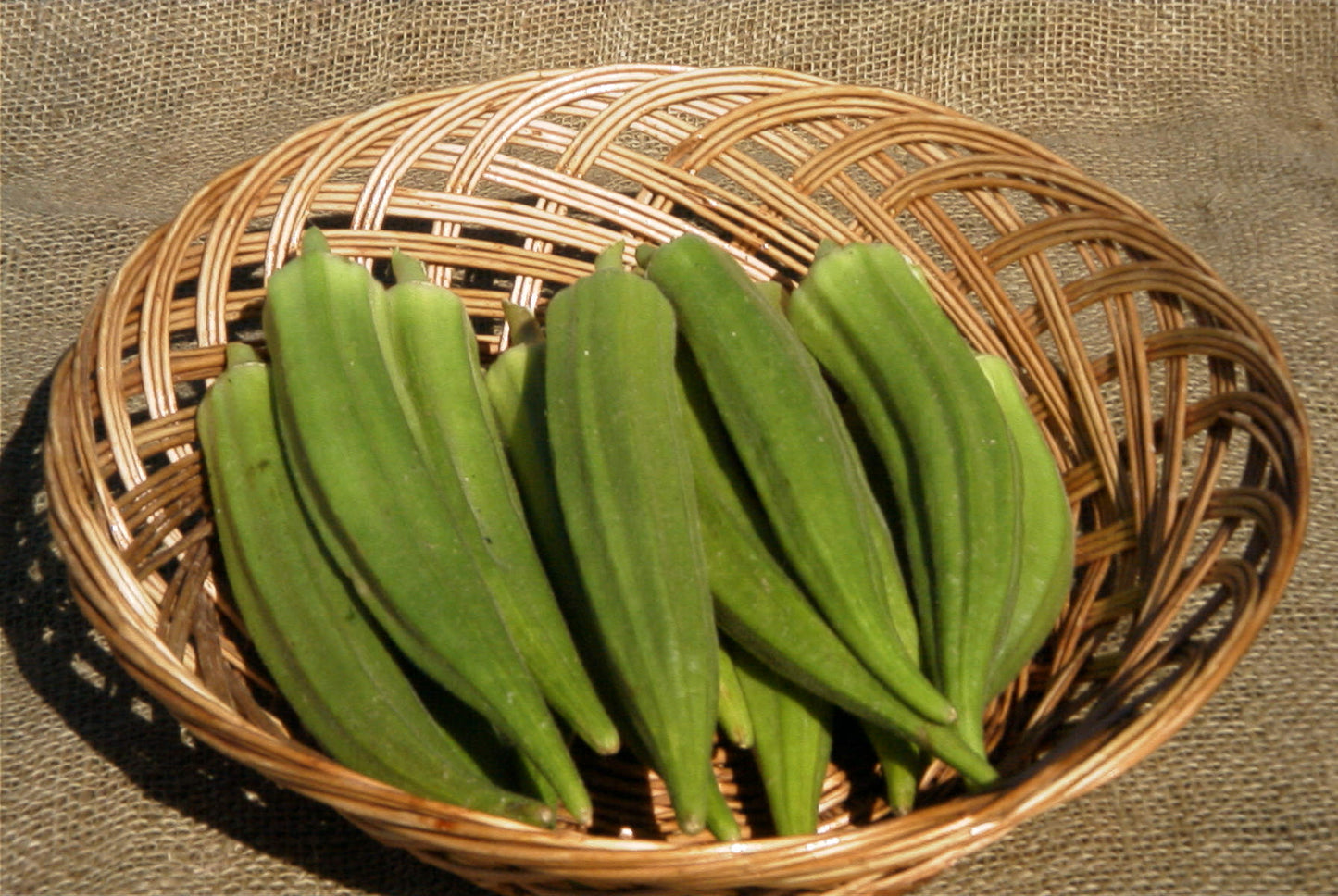
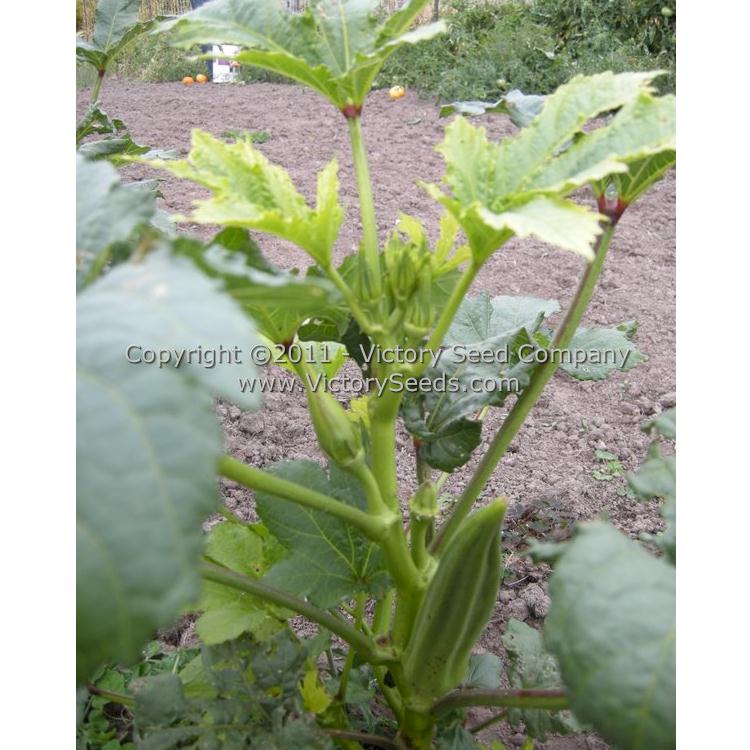
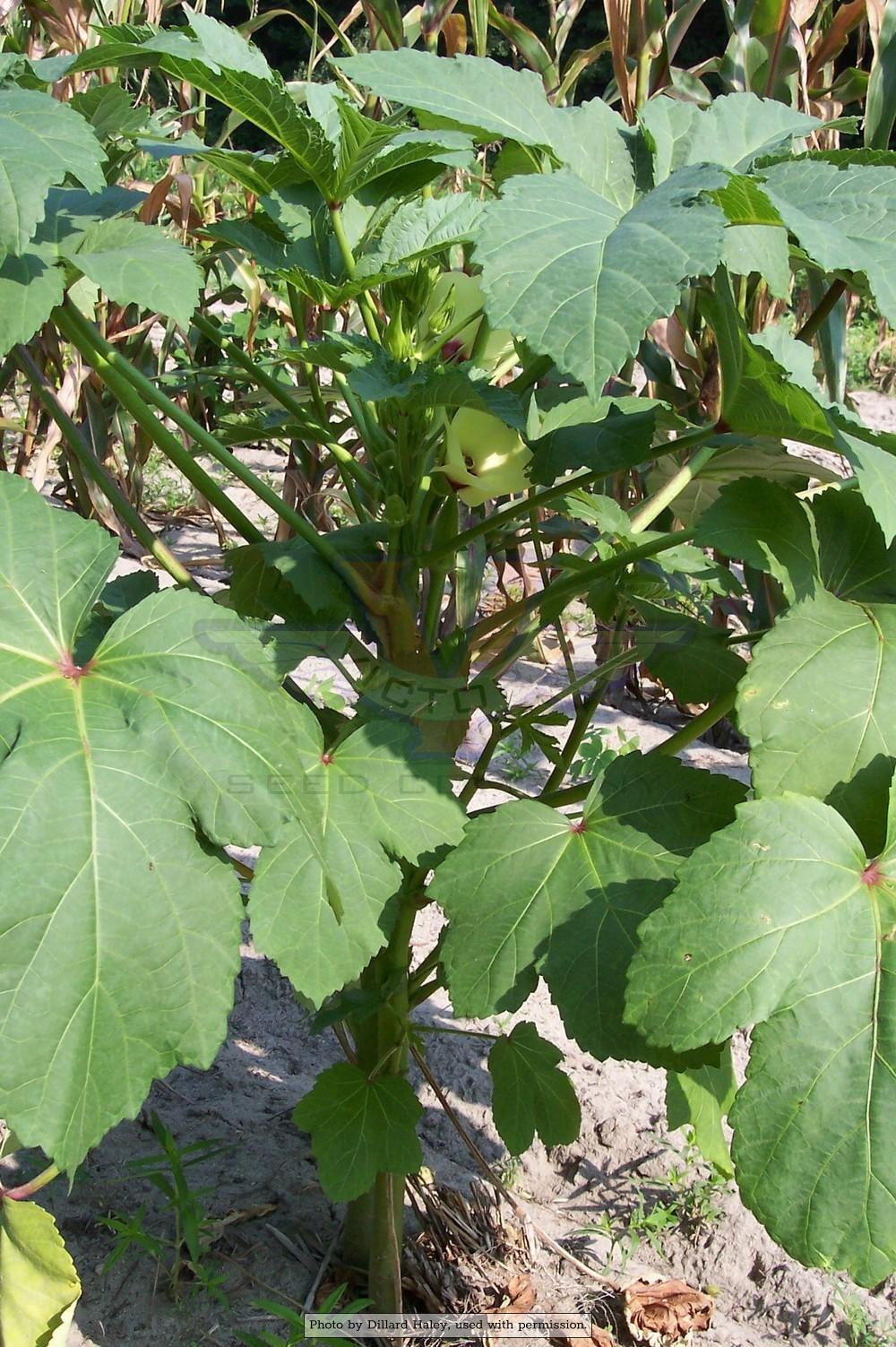
Planting Instructions: Sow seeds ¾ inches deep directly in the garden after the soil has warmed or start seeds in pots and transplant after all danger of frost has passed.
Since okra has tough seed coats, you can either scarify or soak seeds prior to sowing to help improve germination. When soaking the seeds, use warm (but not hot) water and only for 4 to 6 hours.
After the plants are about two inches tall, thin them to a spacing of one plant every eighteen inches, removing the weakest looking plants in the process.
Harvest the pods when young and tender. Older pods become tough and fibrous. If the pods are allowed to mature, the plant will cease production. Okra thrives in warm weather and is used in soups, stews, boiled or fried.
Explore our vegetable collections:
[ Artichokes | Asparagus | Beans | Beets | Broccoli | Sorghums | Brussels Sprouts | Cabbage | Cantaloupe | Carrots | Cauliflower | Celery | Collard Greens | Corn | Cucumber | Eggplant | Endives | Gourds | Kale | Kohlrabi | Leeks | Lettuce | Mesclun Mix | Mustard Greens | Okra | Onions | Parsley | Edible Pod Peas | Garden Peas | South Peas | Hot Peppers | Mild Peppers | Pumpkins | Radishes | Rapini | Rhubarb | Salad Greens | Salsify | Summer Squash | Winter Squash | Swiss Chard | Tomatillo | Tomatoes | Dwarf Tomato Project | Turnips | Watermelons ]

